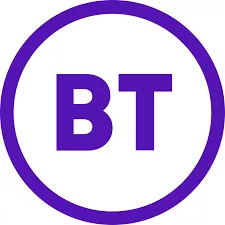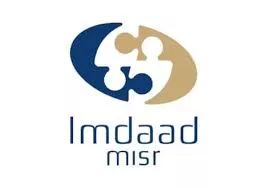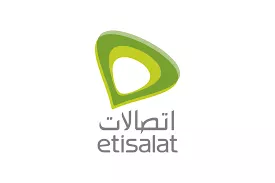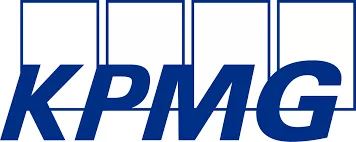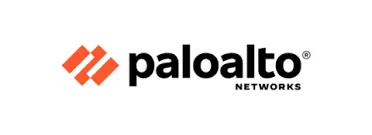In the ever-evolving world of information technology and cybersecurity, staying up to date with the latest trends and acquiring relevant skills is crucial. Not only does this ensure job security in your workplace, but it also makes you aware of the different cyber risks around you so you can better protect yourself. One way to validate your expertise to potential employers and enhance your career prospects in these fields is by obtaining professional certifications. Read our blog on “Best Cyber Security Certifications in 2023 to Boost your Career” to learn which are the best cybersecurity certifications that can increase your career
What is ISACA certification?
ISACA (Information Systems Audit and Control Association) is a well-established professional body that offers a range of certifications that are highly respected and recognized globally. Their qualifications focus on information technology governance, risk management, and cybersecurity. ISACA’s certifications, such as Certified Information Systems Auditor (CISA), Certified Information Systems Security Professional (CISSP) and Certified in Risk and Information Systems Control (CRISC), demonstrate a commitment to excellence and expertise in ensuring the security and integrity of organizational information systems. In this comprehensive guide, we will delve into the world of ISACA certifications, helping you understand their significance, the various certification options, and how to pursue them.
Why ISACA Certifications?
There are several proessional certifications to choose from that ISACA provides to IT professionals. If you’re wondering are ISACA certifications worth it? They definitely are. ISACA certifications are highly regarded in the cybersecurity industry for several reasons:
-
1. Global Recognition: These are recognized worldwide and are often preferred by employers looking to hire professionals with expertise in IT governance, risk management, and cybersecurity.
2. High Standards: ISACA certification courses are known for their stringent requirements and rigorous examination processes, ensuring that certified professionals have a deep understanding of the subject matter.
3. Career Advancement: Holding an ISACA certification can significantly boost your career prospects. Many job postings in IT and cybersecurity require or prefer candidates with ISACA certifications. Candidates can also negotiate for higher salaries in their current place of employment with their ISACA qualification.
4. Up-to-date knowledge and skills: ISACA encourages certified professionals to engage in ongoing professional development. This commitment to learning ensures that ISACA-certified individuals stay current with industry best practices.
As you can see, ISACA-certified professionals enjoy several benefits. Therefore, working toward gaining a qualification issued by ISACA is a great way to advance your career to the next step. The first step is identifying which is the best ISACA qualification for you.
ISACA Certification Options
ISACA offers a variety of certifications, each tailored to specific career paths and areas of expertise. Here are some of the most popular ISACA certifications:
-
1. Certified Information Systems Auditor (CISA): This certification focuses on auditing, control, assurance, and risk management. CISA certification holders are experts in evaluating an organization’s IT processes and controls. Read our blog on “What is CISA certification? Is CISA Certification worth it?” to learn about the benefits of the CISA certification.
2. Certified Information Security Manager (CISM): CISM is designed for information security management professionals. It covers areas such as information risk management, governance, and incident response. Learn more about the CISM certification requirements through our website.
3. Certified in Risk and Information Systems Control (CRISC): CRISC is ideal for those involved in enterprise risk management. It addresses the identification, assessment, and management of information system risks. Check our website to learn if you meet the CRISC certification eligibility requirements.
4. Certified Information Systems Security Professional (CISSP): While not an ISACA certification, CISSP is often mentioned alongside ISACA certifications. It is offered by (ISC)² and focuses on information security. Read our blog on “What is CISSP Certification? Why is CISSP Important?” to learn more about the CISSP certification.
5. CompTIA Security+: It is a globally recognized certification that validates the foundational knowledge and skills required for entry-level cybersecurity positions. It covers a wide range of topics including network security, threat management, cryptography, and identity management. With the increasing demand for cybersecurity professionals, obtaining the CompTIA Security+ certification can greatly enhance career opportunities and demonstrate expertise in protecting organizations from potential cyber threats.
6. Certified Data Privacy Solutions Engineer (CDPSE): This certification focuses on data privacy and is suitable for professionals responsible for ensuring the compliance of data handling processes.
How To Get ISACA Certification?
Pursuing an ISACA certification requires dedication and careful planning. Here are the general steps to follow:
-
1. Choose the Right Certification: Determine which ISACA certification aligns with your career goals and current skill set.
2. Meet the Prerequisites: ISACA certifications often require a certain amount of work experience in relevant fields. Ensure you meet the ISACA certification requirements before applying.
3. Study and Prepare: Invest in study materials such as textbooks, online courses, and practice exams. ISACA also offers official review materials for each certification.
4. Register for the Exam: Visit the ISACA website to register for the certification exam. Pay close attention to deadlines, fees, and exam locations.
5. Take the Exam: On the day of the exam, arrive early, and be well-prepared. ISACA certification exams are typically challenging and require a thorough understanding of the subject matter.
6. Maintain Your Certification: After passing the exam, you’ll need to earn continuing professional education (CPE) credits to maintain your certification. This involves participating in relevant training and activities.
Conclusion
ISACA certifications are highly respected and can open doors to rewarding careers in IT governance, risk management, and cybersecurity. Whether you’re an aspiring auditor, security manager, or risk professional, there’s likely an ISACA certification that suits your career goals. By choosing the right certification, meeting the prerequisites, and dedicating yourself to preparation and ongoing learning, you can earn an ISACA certification and position yourself as a valuable asset in the ever-evolving field of information technology and cybersecurity. However, to gain these esteemed and rewarding certifications, it is necessary you gain the right training.
Why Choose Delphi Star Training Center?
At Delphi Star Training Center, we are committed to providing an excellent training program to help you gain your desired professional qualification in the most efficient way possible.
This is why we provide thousands of practice questions, mock exams, and quizzes to help you prepare for the exam day. Our Learning Management System (LMS) ensures that you have access to your learning materials and class recording 24×7 and our trainers are always ready to answer your doubts and clear up any questions. We provide self-paced, online, and physical classroom training to suit your needs.
Join Delphi’s online cybersecurity certification training programs today to get started on the path to success in your IT career!






